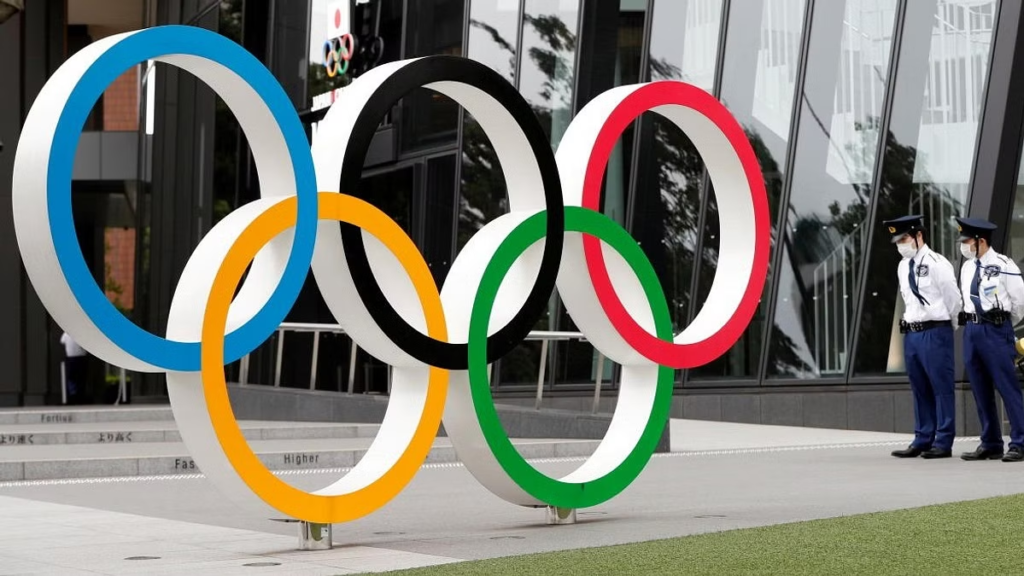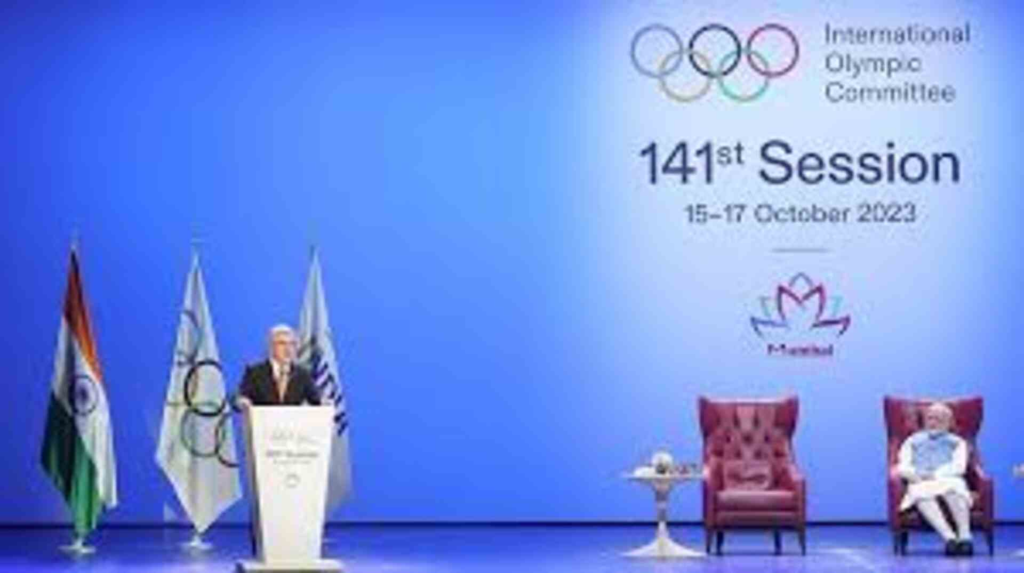India has taken a significant step towards realizing its ambition of hosting the 2036 Olympics Games by officially submitting a ‘Letter of Intent’ to the International Olympic Committee (IOC). This move marks India’s entry into the “Continuous Dialogue” phase of the host selection process for the 2036 Olympic and Paralympic Games.
The country’s aspirations to host the prestigious global event have gained momentum, and the nation is gearing up to compete with several other contenders. This bid, while still in its early stages, could mark a monumental moment in India’s sporting history.
The Journey Towards the Bid
India’s journey toward bidding for the 2036 Olympics began with informal discussions with the IOC. Over the past several months, India had been in dialogue with the IOC’s Future Host Commission, exploring the feasibility of hosting the Games.
These discussions have now culminated in the formal submission of the ‘Letter of Intent,’ which was submitted by the Indian Olympic Association (IOA) on October 1, 2024, marking a significant shift from informal talks to a formal proposal.
Prime Minister Narendra Modi has been vocal about India’s aspirations to host the 2036 Olympics, addressing the subject on several occasions. Last year, he expressed the government’s determination to bring the Olympics to India, stating that the country was prepared to take on the massive responsibility.
During his visit to New York in September 2024, Modi reiterated the nation’s commitment, mentioning that India is putting in all possible efforts to host the 2036 Olympic Games. These efforts are now materializing as India makes strides towards securing the event.
Read : 17-Year-Old Chinese Badminton Player Dies of Cardiac Arrest During Championship Match: Watch
Hosting the Olympics would represent a significant achievement for India, a country that has seen a rising interest in sports across the board. The prospect of hosting the Games is not only about fostering sports but also about promoting economic growth, social progress, and youth empowerment. It would offer a platform to showcase India’s cultural and sporting achievements on the global stage.
India’s Path Through the Host Election Process
The IOC’s host selection process for the Olympic Games follows a structured approach. India’s submission of the ‘Letter of Intent’ marks the transition from “Informal Dialogue” to the “Continuous Dialogue” phase.
During this phase, the IOC conducts a detailed feasibility assessment, evaluating the potential host’s capabilities and progress in various key areas, including human rights, sustainability, and infrastructure.
The IOC’s feasibility study plays a crucial role in determining whether a nation can successfully host the Olympics. The evaluation involves input from independent sources, such as the Business for Social Responsibility (BSR) for human rights considerations, and the International Union for Conservation of Nature (IUCN) for sustainability.
These assessments ensure that the Games align with the IOC’s commitment to ethical standards and environmental sustainability, which are vital components of the modern Olympic Movement.

India’s infrastructure and organizational capacity will come under intense scrutiny as the feasibility study progresses. While India has hosted large-scale international sporting events before, such as the 2010 Commonwealth Games, the Olympics is an entirely different proposition in terms of scale and complexity.
The country’s ability to upgrade its infrastructure, provide adequate facilities, and meet sustainability requirements will be critical in moving forward in the bidding process.
Once the feasibility study is completed, the IOC will move to the next phase, known as “Targeted Dialogue.” In this stage, India would be required to submit a formal, edition-specific bid for the 2036 Games.
This formal bid will include a detailed plan for hosting the Olympics, covering areas such as venue construction, transportation, accommodation, security, and logistics. The submission would then be reviewed by the IOC’s Future Host Commission, and the final decision will be made after a thorough evaluation.
India Faces Competition from Other Contenders
While India has taken a significant step forward by submitting its official bid, it is not the only country vying for the opportunity to host the 2036 Olympics. India will face stiff competition from other nations, including Saudi Arabia, Qatar, and Turkey, all of which have expressed strong interest in hosting the Games. Each of these countries has its own unique strengths and challenges in the bidding process, making the competition intense.
Saudi Arabia, for example, has been aggressively positioning itself as a hub for global sporting events in recent years. With substantial financial resources and an ambitious vision to diversify its economy through sports and tourism, the kingdom has already hosted high-profile events like Formula 1 races and international boxing matches.
Saudi Arabia’s bid for the 2036 Olympics is part of its broader strategy to establish itself as a key player on the global sports stage.

Similarly, Qatar has gained significant experience in hosting major sporting events, most notably the 2022 FIFA World Cup. With its state-of-the-art infrastructure and proven organizational capabilities, Qatar is another formidable contender in the race for the 2036 Olympics. The country’s track record in successfully hosting international events gives it a competitive edge in terms of experience and preparedness.
Turkey, too, has a long-standing interest in hosting the Olympics and has previously submitted bids for past editions of the Games. With its unique geographical location straddling both Europe and Asia, Turkey presents itself as a bridge between cultures, offering a compelling narrative for hosting a global event like the Olympics. However, political and economic challenges could impact its chances.
India will need to differentiate its bid by focusing on its cultural heritage, growing sporting infrastructure, and the potential economic and social benefits of hosting the Olympics. The Indian government and the IOA will have to work closely with international bodies, as well as domestic stakeholders, to ensure that India’s bid remains competitive throughout the host election process.
The Potential Impact of Hosting the Olympics on India
Hosting the Olympic Games in 2036 could have far-reaching implications for India, impacting not only the sports sector but also the broader economy and society. One of the most significant potential benefits would be the boost to infrastructure development.
To successfully host the Games, India would need to make significant investments in upgrading its sporting venues, transportation systems, accommodation, and public facilities. These investments could have long-term benefits, improving the quality of life for citizens and enhancing the country’s global standing.
In addition to infrastructure improvements, hosting the Olympics would provide a significant boost to India’s tourism industry. The influx of visitors from around the world, coupled with the global media attention the Games attract, would put India in the international spotlight, showcasing its rich cultural heritage and diverse attractions. This could lead to a surge in international tourism, with long-lasting economic benefits.
The social impact of hosting the Olympics would also be profound. The Games could serve as a powerful tool for promoting youth empowerment and fostering a greater interest in sports across the country.
India has a young and growing population, and hosting the Olympics would provide an opportunity to inspire the next generation of athletes and sports enthusiasts. The event would also provide a platform to promote gender equality, inclusivity, and other social values, aligning with the Olympic spirit of unity and cooperation.

On the international stage, hosting the Olympics would elevate India’s status as a global player in the world of sports and diplomacy. It would demonstrate the country’s ability to organize and manage a large-scale international event, reinforcing India’s reputation as an emerging global power.
Furthermore, it would provide a unique opportunity for cultural exchange, fostering greater understanding and cooperation between India and the international community.
However, hosting the Olympics also comes with significant challenges. The financial costs of organizing the Games can be immense, and there is always the risk of cost overruns, as seen in previous Olympic host cities.
Ensuring that the infrastructure built for the Games has a lasting legacy and is not left unused after the event is another key concern. India will need to carefully plan its investments and ensure that the Games contribute to long-term development goals.
India’s official submission of a ‘Letter of Intent’ to host the 2036 Olympic and Paralympic Games is a major milestone in the country’s sporting ambitions.
While the road ahead is long and competitive, India has made its intentions clear and is prepared to work towards realizing its Olympic dream. With strong government backing, a growing interest in sports, and a clear vision for the future, India is positioning itself as a serious contender in the race to host the 2036 Games.
The coming years will be critical as the nation navigates the host election process and faces competition from other global contenders, but India’s journey towards hosting the Olympics has officially begun.
let’s enjoy few years on earth with peace and happiness….✍🏼🙏

